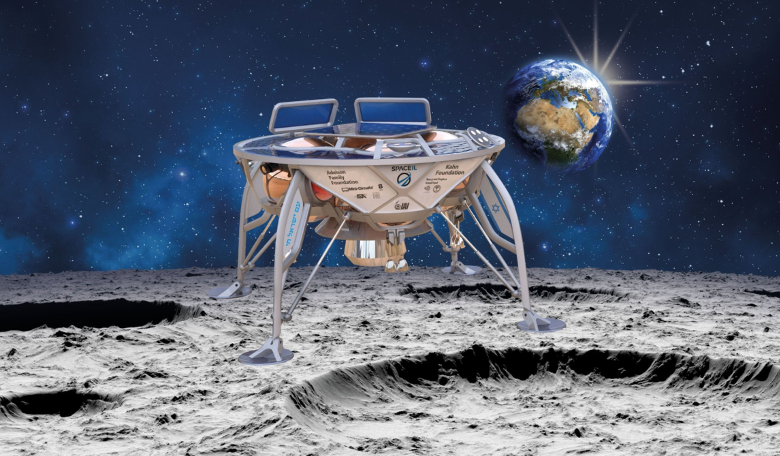They may not have succeeded in winning the Google Lunar X Prize, but the Israeli nonprofit SpaceIL organisation is still shooting for the Moon and plans to send its lander to the lunar surface by the end of the year. This would be the first-ever Israeli Moon mission and only the fourth country after the US, Russia and China to put a craft on the surface of the moon.
In an announcement made this week by SpaceIL and the government-owned corporation Israel Aerospace Industries (IAI), the parties said they will use a SpaceX Falcon 9 rocket to deliver their robotic lander to the Moon following a launch scheduled for December from Cape Canaveral, Florida.
In the coming months the spacecraft will undergo a series of intensive checks and tests at IAI, to prove that the lander will withstand the launch, flight and landing conditions, said Dr. Ido Anteby, SpaceIL CEO.
Following blast off, the spacecraft will separate from the launch rocket at an altitude of 60,000 kilometres (37,282 miles), and will begin orbiting Earth in elliptical orbits. When it reaches the right altitude, it will ignite its engines and reduce its speed to allow the moon's gravity to capture it.
It is anticipated that the lander – which will be the smallest craft to land on the moon, weighing only 600 kilograms (1,322 pounds) – will take around two months to reach its destination from launch to landing. Once firmly ensconced on the surface, its mission, aside from taking photos and videos of the landing site, is to measure the moon's magnetic field as part of a scientific experiment conducted in collaboration with Weizmann Institute.
"After eight challenging years, I am filled with pride that the first Israeli spacecraft, which is in its final construction and testing phases, will soon be making its way to the moon. I have experienced numerous challenges in my life, but this was the greatest challenge of all. This is a huge achievement for us - SpaceIL - and for our partners, Israel Aerospace Industries, who have been with us since day one. The launch of the first Israeli spacecraft will fill Israel, in its 70th year, with pride. It is a national accomplishment that will put us on the world's space map," said SpaceIL President Morris Kahn.
Kahn has donated around $27 million towards the project, and a further $61 million has been invested in the spacecraft's development and construction mostly from private donors.
Although SpaceIL was initially founded by three young engineers to compete for Google's $20 million Lunar X Prize, the promise of landing an Israeli spacecraft on the moon has become something of a national educational beacon by inspiring the country’s children to take up STEM (science, technology, engineering and maths) subjects. By continuing with the mission, SpaceIL aims to set in motion an "Apollo effect" by showing what is possible with the right education.











